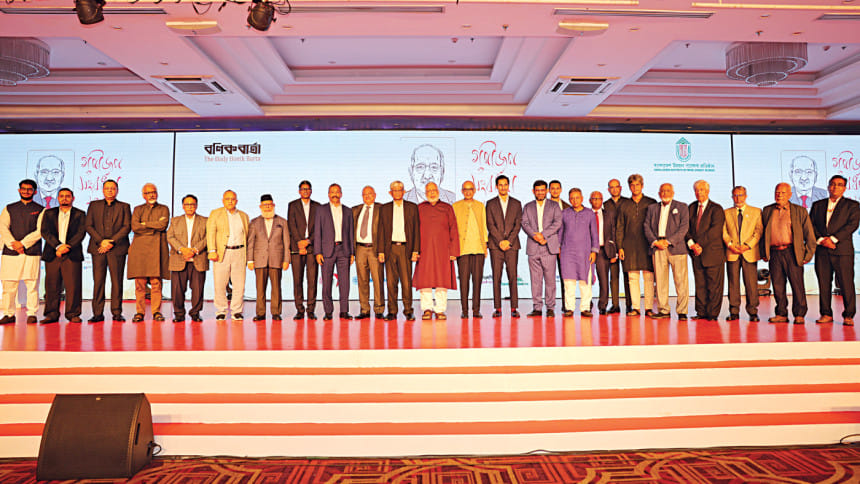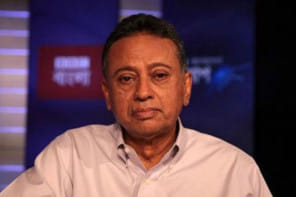Saifur Rahman, a champion of market economy

Bangladesh's economy was criminalised for many years, but it avoided total collapse due to key transformational steps taken by former finance minister Saifur Rahman, said Commerce Adviser SK Bashir Uddin yesterday.
He made the remarks while speaking at the seventh edition of "Gunijan Sambardhana", organised by Bangla daily Bonik Barta and the Bangladesh Institute of Development Studies at a city hotel.
The event, which recognises distinguished personalities for their outstanding contributions to the nation, honoured Saifur Rahman posthumously for his role in shaping the country's economy.
Saifur Rahman served as the commerce minister from 1976-1980, finance minister from 1980-1982, technocrat finance minister from 1991-1996, and finance and planning minister from 2001-2006.
He played a crucial role in developing the private sector and shaping economic policies, including the introduction of VAT, back-to-back LCs in the garment sector, and bonded warehouse facilities.
Highlighting Saifur Rahman's contributions, Bashir said his policies prevented an economic downturn immediately after a period of instability.
"The economy was on the verge of collapse, but his policies kept it running for years," he said.
Bashir emphasised that the current government is working to rebuild the economy with a fair distribution of resources, preventing the rise of crony capitalism.
BNP Standing Committee Member Amir Khasru Mahmud Chowdhury said Saifur Rahman worked for all sections of the society, maintaining a balance between business interests and the welfare of citizens.
He focused on improving the lives of the marginalised, said Khasru, a former commerce minister. Saifur Rahman also focused on reducing dependency on foreign aid and mobilising internal resources, the BNP leader said.
Describing Saifur Rahman as "a champion of market economy, private sector development, and export-led growth," Khasru said he had the ability to make tough decisions for economic transformation despite obstacles.
Power Adviser Muhammad Fouzul Kabir Khan said when autocratic governments leave power, they often deplete the country's treasury and foreign exchange reserves, a situation Bangladesh recently witnessed.
He credited Rahman for successfully managing the finance ministry in the 1990s under similar circumstances, calling him the best finance minister the country has seen.
Finance Adviser Salehuddin Ahmed said he had not seen such a friendly and knowledgeable minister in his career as Saifur Rahman.
He said Saifur Rahman never interfered in the central bank's operations, which is rare for a political finance minister.
Former finance secretary Zakir Ahmed, BIDS acting Director General Kazi Iqbal, and Bonik Barta Editor Dewan Hanif Mahmud also spoke at the event.
Additionally, Planning and Education Adviser Wahiduddin Mahmud, BNP Secretary General Mirza Fakhrul Islam Alamgir, ICC Bangladesh President Mahbubur Rahman, and Debapriya Bhattacharya, distinguished fellow at CPD, shared their thoughts via video messages at the event.

 For all latest news, follow The Daily Star's Google News channel.
For all latest news, follow The Daily Star's Google News channel. 



Comments